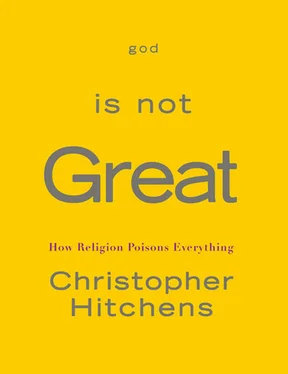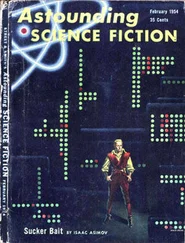Christopher Hitchens - God Is Not Great
Здесь есть возможность читать онлайн «Christopher Hitchens - God Is Not Great» весь текст электронной книги совершенно бесплатно (целиком полную версию без сокращений). В некоторых случаях можно слушать аудио, скачать через торрент в формате fb2 и присутствует краткое содержание. Город: New York, Год выпуска: 2007, ISBN: 2007, Издательство: Twelve Books, Жанр: Публицистика, на английском языке. Описание произведения, (предисловие) а так же отзывы посетителей доступны на портале библиотеки ЛибКат.
- Название:God Is Not Great
- Автор:
- Издательство:Twelve Books
- Жанр:
- Год:2007
- Город:New York
- ISBN:978-0-446-19534-8
- Рейтинг книги:3 / 5. Голосов: 1
-
Избранное:Добавить в избранное
- Отзывы:
-
Ваша оценка:
- 60
- 1
- 2
- 3
- 4
- 5
God Is Not Great: краткое содержание, описание и аннотация
Предлагаем к чтению аннотацию, описание, краткое содержание или предисловие (зависит от того, что написал сам автор книги «God Is Not Great»). Если вы не нашли необходимую информацию о книге — напишите в комментариях, мы постараемся отыскать её.
and Sam Harris’s recent bestseller,
, Christopher Hitchens makes the ultimate case against religion. With a close and erudite reading of the major religious texts, he documents the ways in which religion is a man-made wish, a cause of dangerous sexual repression, and a distortion of our origins in the cosmos. With eloquent clarity, Hitchens frames the argument for a more secular life based on science and reason, in which hell is replaced by the Hubble Telescope’s awesome view of the universe, and Moses and the burning bush give way to the beauty and symmetry of the double helix.
God Is Not Great — читать онлайн бесплатно полную книгу (весь текст) целиком
Ниже представлен текст книги, разбитый по страницам. Система сохранения места последней прочитанной страницы, позволяет с удобством читать онлайн бесплатно книгу «God Is Not Great», без необходимости каждый раз заново искать на чём Вы остановились. Поставьте закладку, и сможете в любой момент перейти на страницу, на которой закончили чтение.
Интервал:
Закладка:
The resulting “books” turned out to be a record set down by ancient prophets, beginning with Nephi, son of Lephi, who had fled Jerusalem in approximately 600 BC and come to America. Many battles, curses, and afflictions accompanied their subsequent wanderings and those of their numerous progeny. How did the books turn out to be this way? Smith refused to show the golden plates to anybody, claiming that for other eyes to view them would mean death. But he encountered a problem that will be familiar to students of Islam. He was extremely glib and fluent as a debater and story-weaver, as many accounts attest. But he was illiterate, at least in the sense that while he could read a little, he could not write. A scribe was therefore necessary to take his inspired dictation. This scribe was at first his wife Emma and then, when more hands were necessary, a luckless neighbor named Martin Harris. Hearing Smith cite the words of Isaiah 29, verses 11–12, concerning the repeated injunction to “Read,” Harris mortgaged his farm to help in the task and moved in with the Smiths. He sat on one side of a blanket hung across the kitchen, and Smith sat on the other with his translation stones, intoning through the blanket. As if to make this an even happier scene, Harris was warned that if he tried to glimpse the plates, or look at the prophet, he would be struck dead.
Mrs. Harris was having none of this, and was already furious with the fecklessness of her husband. She stole the first hundred and sixteen pages and challenged Smith to reproduce them, as presumably—given his power of revelation—he could. (Determined women like this appear far too seldom in the history of religion.) After a very bad few weeks, the ingenious Smith countered with another revelation. He could not replicate the original, which might be in the devil’s hands by now and open to a “satanic verses” interpretation. But the all-foreseeing Lord had meanwhile furnished some smaller plates, indeed the very plates of Nephi, which told a fairly similar tale. With infinite labor, the translation was resumed, with new scriveners behind the blanket as occasion demanded, and when it was completed all the original golden plates were transported to heaven, where apparently they remain to this day.
Mormon partisans sometimes say, as do Muslims, that this cannot have been fraudulent because the work of deception would have been too much for one poor and illiterate man. They have on their side two useful points: if Muhammad was ever convicted in public of fraud and attempted necromancy we have no record of the fact, and Arabic is a language that is somewhat opaque even to the fairly fluent outsider. However, we know the Koran to be made up in part of earlier books and stories, and in the case of Smith it is likewise a simple if tedious task to discover that twenty-five thousand words of the Book of Mormon are taken directly from the Old Testament. These words can mainly be found in the chapters of Isaiah available in Ethan Smith’s View of the Hebrews : The Ten Tribes of Israel in America . This then popular work by a pious loony, claiming that the American Indians originated in the Middle East, seems to have started the other Smith on his gold-digging in the first place. A further two thousand words of the Book of Mormon are taken from the New Testament. Of the three hundred and fifty “names” in the book, more than one hundred come straight from the Bible and a hundred more are as near stolen as makes no difference. (The great Mark Twain famously referred to it as “chloroform in print,” but I accuse him of hitting too soft a target, since the book does actually contain “The Book of Ether.”) The words “and it came to pass” can be found at least two thousand times, which does admittedly have a soporific effect. Quite recent scholarship has exposed every single other Mormon “document” as at best a scrawny compromise and at worst a pitiful fake, as Dr. Brodie was obliged to notice when she reissued and updated her remarkable book in 1973.
Like Muhammad, Smith could produce divine revelations at short notice and often simply to suit himself (especially, and like Muhammad, when he wanted a new girl and wished to take her as another wife). As a result, he overreached himself and came to a violent end, having meanwhile excommunicated almost all the poor men who had been his first disciples and who had been browbeaten into taking his dictation. Still, this story raises some very absorbing questions, concerning what happens when a plain racket turns into a serious religion before our eyes.
Professor Daniel Dennett and his supporters have attracted a great deal of criticism for their “natural science” explanation of religion. Never mind the supernatural, argues Dennett, we may discard that while accepting that there have always been those for whom “belief in belief” is a good thing in itself. Phenomena can be explained in biological terms. In primitive times, is it not possible that those who believed in the shaman’s cure had a better morale as a result, and thus a slightly but significantly higher chance of actually being cured? “Miracles” and similar nonsense to one side, not even modern medicine rejects this thought. And it seems possible, moving to the psychological arena, that people can be better off believing in something than in nothing, however untrue that something may be.
Some of this will always be disputed among anthropologists and other scientists, but what interests me and always has is this: Do the preachers and prophets also believe, or do they too just “believe in belief”? Do they ever think to themselves, this is too easy? And do they then rationalize the trick by saying that either (a) if these wretches weren’t listening to me they’d be in even worse shape; or (b) that if it doesn’t do them any good then it still can’t be doing them much harm? Sir James Frazer, in his famous study of religion and magic The Golden Bough , suggests that the novice witch doctor is better off if he does not share the illusions of the ignorant congregation. For one thing, if he does take the magic literally he is much more likely to make a career-ending mistake. Better by far to be a cynic, and to rehearse the conjury, and to tell himself that everybody is better off in the end. Smith obviously seems like a mere cynic, in that he was never happier than when using his “revelation” to claim supreme authority, or to justify the idea that the flock should make over their property to him, or to sleep with every available woman. There are gurus and cult leaders of that kind born every day. Smith must certainly have thought it was too easy to get innocent wretches like Martin Harris to believe everything he told them, especially when they were thirsty for just a glimpse of that mouthwatering golden trove. But was there a moment when he also believed that he did have a destiny, and was ready to die to prove it? In other words, was he a huckster all the time, or was there a pulse inside him somewhere? The study of religion suggests to me that, while it cannot possibly get along without great fraud and also minor fraud, this remains a fascinating and somewhat open question.
There were dozens of part-educated, unscrupulous, ambitious, fanatical men like Smith in the Palmyra, New York, area at that epoch, but only one of them achieved “takeoff.” This is for two probable reasons. First, and by all accounts, including those of his enemies, Smith had great natural charm and authority and fluency: what Max Weber called the “charismatic” part of leadership. Second, there were at that time a great number of people hungry for soil and a new start in the West, constituting a huge latent force behind the notion of a new leader (let alone a new holy book) that could augur a “Promised Land.” The wanderings of the Mormons in Missouri and Illinois and Utah, and the massacres that they both suffered and inflicted on the way, gave body and sinew to the idea of martyrdom and exile—and to the idea of the “Gentiles,” as they scornfully called the unbelievers. It is a great historical story and (unlike its origin in a piece of vulgar fabrication) can be read with respect. It does, however, have two indelible stains. The first is the sheer obviousness and crudity of its “revelations,” which were opportunistically improvised by Smith and later by his successors as they went along. And the second is its revoltingly crude racism. Christian preachers of all kinds had justified slavery until the American Civil War and even afterwards, on the supposed biblical warrant that of the three sons of Noah (Shem, Ham, and Japhet), Ham had been cursed and cast into servitude. But Joseph Smith took this nasty fable even further, fulminating in his “Book of Abraham” that the swarthy races of Egypt had inherited this very curse. Also, at the made-up battle of “Cumora,” a site located conveniently near his own birthplace, the “Nephites”—described as fair-skinned and “handsome”—contended against the “Lamanites,” whose descendants were punished with dark pigment for turning away from god. As the crisis over American slavery mounted, Smith and his even more dubious disciples preached against the abolitionists in antebellum Missouri. They solemnly said that there had been a third group in heaven during the ultimate battle between God and Lucifer. This group, as it was explained, had tried to remain neutral. But after Lucifer’s defeat they had been forced into the world, compelled “to take bodies in the accursed lineage of Canaan; and hence the negro or African race.” Thus, when Dr. Brodie first wrote her book, no black American was allowed to hold even the lowly position of deacon, let alone a priesthood, in the Mormon Church. Nor were the descendants of Ham admitted to the sacred rites of the temple.
Читать дальшеИнтервал:
Закладка:
Похожие книги на «God Is Not Great»
Представляем Вашему вниманию похожие книги на «God Is Not Great» списком для выбора. Мы отобрали схожую по названию и смыслу литературу в надежде предоставить читателям больше вариантов отыскать новые, интересные, ещё непрочитанные произведения.
Обсуждение, отзывы о книге «God Is Not Great» и просто собственные мнения читателей. Оставьте ваши комментарии, напишите, что Вы думаете о произведении, его смысле или главных героях. Укажите что конкретно понравилось, а что нет, и почему Вы так считаете.












